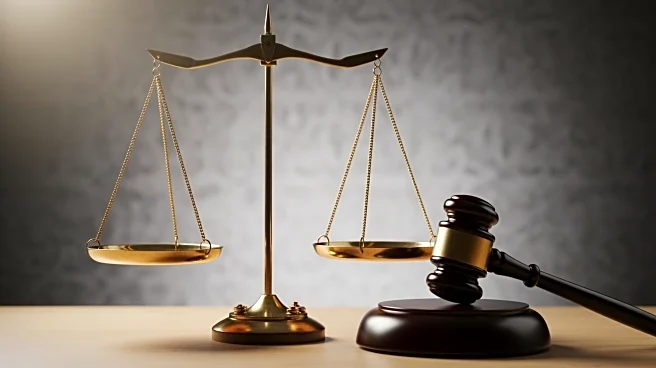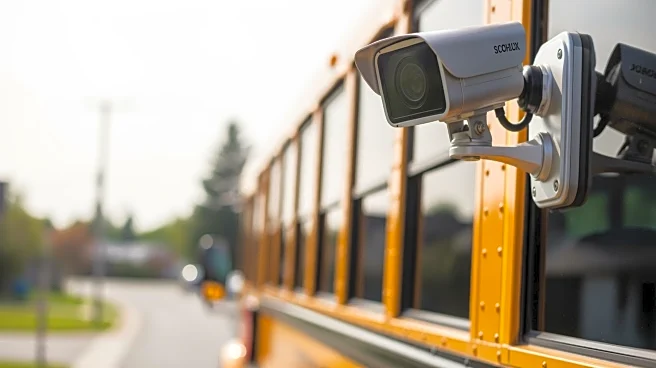What's Happening?
Elliott Broidy, a former deputy finance chair of the Republican National Committee, has filed a defamation lawsuit against the Israeli newspaper Haaretz. The lawsuit, submitted to the U.S. District Court for the Southern District of Florida, accuses Haaretz of falsely
portraying Broidy as a partner at Koios, an Israeli firm allegedly working for Qatar. The article in question, published on September 1, described Broidy as a 'secret partner' at Koios, a claim that Broidy disputes. According to the lawsuit, Broidy was merely a passive investor and shareholder, and he severed ties with the company upon learning of its activities related to Qatar. The lawsuit further alleges that Haaretz misrepresented the involvement of Koios by suggesting that another company, owned by one of Koios's founders, was acting as a proxy for Koios. Broidy, who was pardoned by President Trump in 2021 for failing to register as a foreign agent, is seeking to clear his name and hold Haaretz accountable for what he claims is a false and malicious portrayal.
Why It's Important?
This lawsuit highlights the ongoing tensions between media outlets and public figures over issues of defamation and misrepresentation. For Broidy, the case is significant as it seeks to protect his reputation, which he claims has been damaged by the article. The outcome of this lawsuit could have broader implications for media accountability and the standards of reporting, particularly in cases involving complex international business relationships. If successful, Broidy's case may encourage other public figures to pursue legal action against media outlets for perceived inaccuracies, potentially leading to a chilling effect on investigative journalism. Conversely, a ruling in favor of Haaretz could reinforce the protections afforded to journalists and media organizations under defamation laws, emphasizing the importance of freedom of the press.
What's Next?
The legal proceedings will likely involve a detailed examination of the evidence presented by both parties. Haaretz may need to provide documentation or testimony to support its claims about Broidy's involvement with Koios. The court's decision could set a precedent for how similar cases are handled in the future, particularly those involving international media and public figures. Observers will be watching closely to see how the court balances the rights of individuals to protect their reputations against the rights of the press to report on matters of public interest.
Beyond the Headlines
This case also touches on the ethical responsibilities of media outlets in reporting on complex international business dealings. It raises questions about the due diligence required in verifying information and the potential consequences of failing to do so. The lawsuit underscores the challenges faced by media organizations in navigating the fine line between investigative reporting and defamation, especially in an era where misinformation can spread rapidly online.















